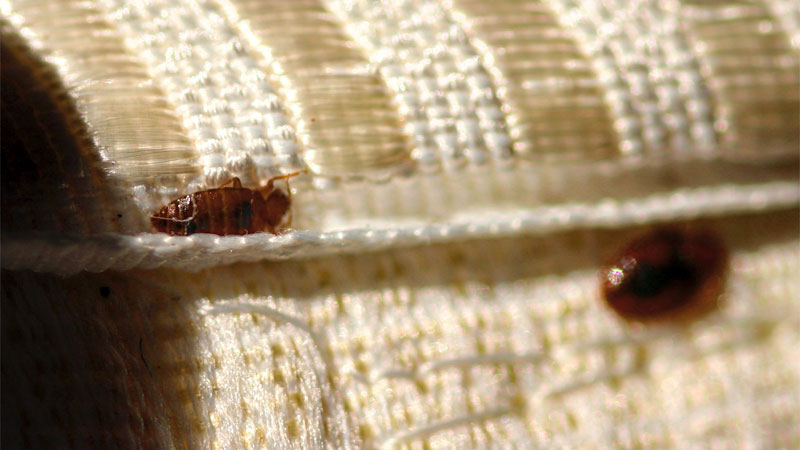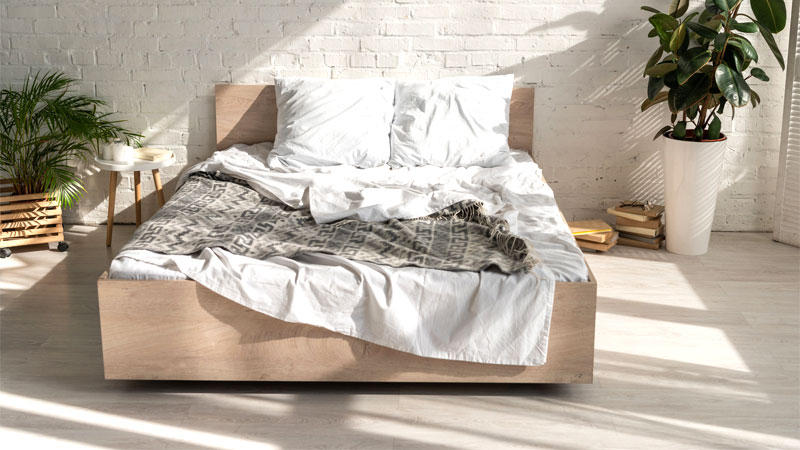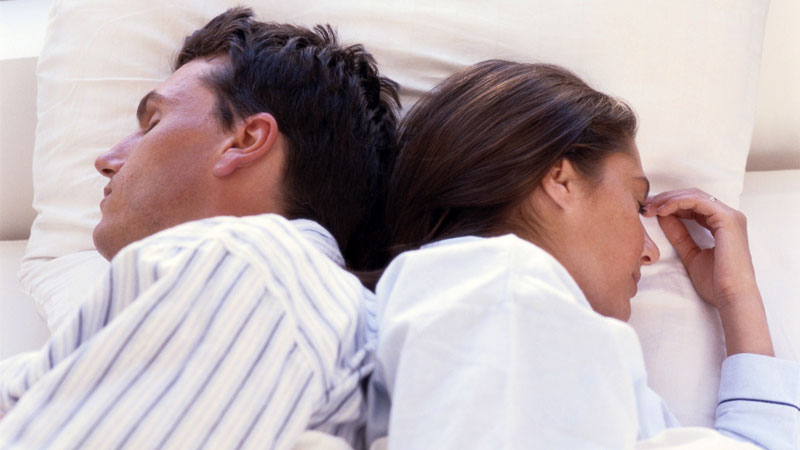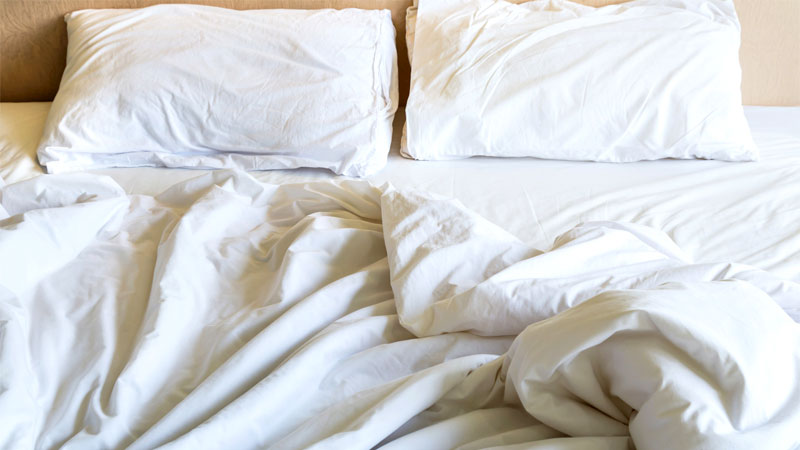Around 100 years ago, bed bugs were nearly wiped out in the US, thanks to the many new pesticides that were created. However, the survivors developed an immunity to these treatments and eventually came back with a vengeance.
Today, the appearance of bed bugs can close down businesses and schools, their mere name invoking dread. But it’s not the end of the world when they end up in your home.
What do bed bugs hate more than not having food? Humans that know their weaknesses. And you’re about to be among those humans.
Before We Begin…
When you believe you may have been exposed to bed bugs, don’t panic. Instead, take a moment to inspect your room for signs of an infestation, such as casings or frass.
Getting a mysterious bite may not mean bed bugs, and there are many other pests that can be mistaken for a bed bug. However, once you’ve determined you really do have an infestation, there are a couple ways to get rid of them.
Obviously, you can call an exterminator, or try bug bombs. But these methods take time and are often inconvenient. Meanwhile, you and your loved ones are still getting bitten.
The good news is that there are several natural insect repellents you can employ at home or on the road. The following are just a few of these effective solutions.
- Kills Resistant Bed Bugs & Their Eggs - Kills even the toughest "pyrethroid...
- Kills Quickly - Knocks down bed bugs fast when sprayed directly
- Long Residual - Continues to kill bed bugs for up to 16 weeks after initial...
Things That Bed Bugs Hate
#1 – Light and Temperature
If there’s one thing bed bugs absolutely despise, it’s light. Light means exposure to natural predators and thus poses a clear and present danger. This makes it perhaps the best way to repel these pests.
Leave your curtains open during the day and use lamps or nightlights at night, especially if you can sleep without any covers for a night or two. Even a small penlight is enough to send them scurrying. Just keep in mind that they’ll still attack in broad daylight if they get hungry enough.
On a related note, heat can both attract and frighten off bed bugs. They’re drawn to body heat, which tends to range between 96 and 100 degrees for a healthy adult.
But if it gets much hotter, that heat can be dangerous to bed bugs. In fact, a temperature of 117 to 120 degrees is enough to cook a bed bug to death in minutes. This is why the hot water from a steam vac kills bed bugs so well.
You can use this to your advantage as well by steam cleaning your mattress. It won’t kill all of the bed bugs on its own, but it can kill some of them and send the rest scurrying for cover.
Cold can also affect bed bugs, although your home will likely never get cold enough to kill them. But dropping the temperature in a room does have its benefits as it can slow a bed bug’s metabolism, which means longer periods between feedings.
It will also make them more sluggish and easy to catch. They’ll lay fewer eggs, take longer to hatch, and grow at a slower pace. While it won’t necessarily chase them away, cold rooms can buy you some valuable time to get that bug bomb or exterminator.
#2 – Clothes
They say that clothes make the man, but they also make a pretty good defense against bed bugs.
The reason bed bug bites happen in a straight line is that the bugs are unable to get a good grip on your skin or hair, and even slight movements can dislodge them. While they have some climbing ability, it has its limits.
This inability to hold onto things is the main reason why clothing works as a natural repellent for bed bugs.
When the bugs come out at night, they’ll look for exposed flesh. The more coverage your clothes provide, the harder it will be for the bugs to find a feeding spot.
Full pajamas can thus limit the bite zones to your face, neck, hands, and feet (unless you have socks on). Such limited spaces make it easier to use other remedies, especially scent-based ones.
#3 – Colors
Bed bugs, much like a lot of other insects, actually have a color preference. For example, you might have noticed that certain butterflies gravitate to flowers with a specific color.
This attraction is believed to be due to either an insect’s visible color spectrum (butterflies can see colors we can’t) or an association with food or safety.
In the case of bed bugs, they prefer red and black over other colors. The red resembles food, while black gives the appearance of shelter.
As a result, you’re much more likely to be bitten by wearing dark colors than light ones. Use this knowledge to your advantage and wear light clothing to bed and use white or brightly colored sheets and blankets.
#4 – Smells
This is the big one, and most repellent methods involve some type of scent. This is because strong smells can mask the smell of blood, leaving the bed bugs confused or even encouraging them to avoid the source of the smell.
Here are a few different scent-based repellents and how they work.
Essential Oils
Essential oils are some of the most popular repellents out there, and for good reason. Not only can a spray with some essential oils repel bed bugs and other critters, but they also smell nice and sometimes even kill on contact.
Try mixing a few of these ingredients into a spray and treating your bed, one to two times per day:
- Blood orange oil
- Citronella
- Lavender oil
- Lemon or lime
- Oregano or other oils containing carvacrol
- Peppermint (or other mint oils)
- Rosemary
- Tea tree oil
- Thyme
Note that killing bed bugs with these oils requires direct contact during application, and there are other remedies such as rubbing alcohol or Fabuloso that have similar functionality if you want to go for kills and not smells.
Garlic
Not only can plenty of garlic in your diet repel relatives and even loved ones, but it can also repel bed bugs. It’s a curious fact that bed bugs sometimes develop a taste for specific blood types, which they can smell. But what happens when all they smell is garlic?
When you eat garlic, some of the oils come out in your sweat. You can also make a bedtime spray for your hands, neck, and feet if you don’t mind chasing your spouse out of the room for the night (unless you married an Italian, of course).
This can help prevent attacks while you sleep, and it will even work against some other common bedroom bugs.
Coconut Oil
There is some evidence that coconut oil may repel bed bugs. The essential fatty acids in coconut oil are irritating to bugs that eat a liquid-based diet, and the oil has anti-pesticide properties. However, there are better methods for controlling bed bugs than this one.
Cinnamon
The smell of cinnamon and sugar is one of the most relaxing (and hunger-inducing) scents out there. Unlike the pungent smell of pepper, the citrusy scent of citronella, or the floral scent of lavender, cinnamon has a spicy yet appealing smell.
A wide range of products feature the scent of cinnamon if you don’t want to sprinkle powder all over your bed. Candles, incense, air fresheners, and even Febreze offers this relaxing scent, so you have plenty of options.
Scented Candles and Incense
This isn’t the most effective method out there, but candles with a strong scent can help repel bed bugs to some degree. Obviously, the most effective is a citronella candle, but some types of incense and candle smells can also do the same job as essential oils.
The upside is that they aren’t likely to get in your eyes while you sleep, but the downside is that you’ll have to burn them pretty close to the bed to be effective, which can be a fire hazard if you don’t have the proper containers.
The Decoy Smell
Okay, so this isn’t actually a repellent. Quite the opposite, in fact. There are traps on the market that can attract bed bugs with their scent. However, the bed bug finds poison or a quick death instead of a blood meal.
Such traps aren’t very common on the market, and the jury’s still out on how well they work.
However, when the best defense is a good offense, using one of these traps in conjunction with some of the repellent methods we’ve talked about can trick the bed bugs into scurrying away from the food and towards their doom.
- How to Get Rid of Click Beetles (and Wireworms) - May 5, 2024
- How to Get Rid of Hawks - March 8, 2024
- How to Get Rid of Pill Bugs (Rolly Pollies) - March 1, 2024







Best website for what I’ve been looking for. Thanks
Thanks Sue!